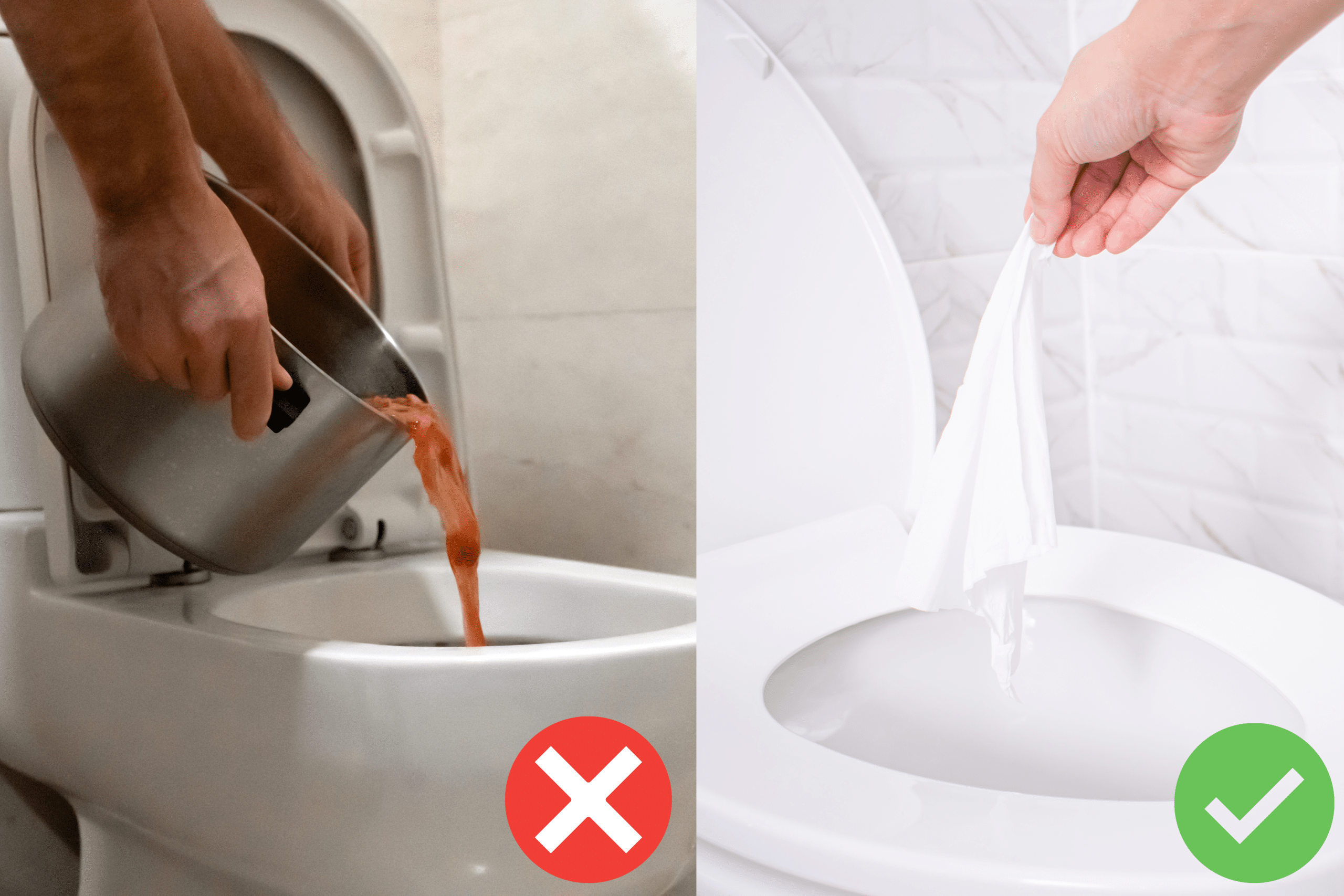Nobody wants to replace a septic system, it’s a huge expense for homeowners. There are many things you can do to keep your septic system healthy and avoid system failure. Remember, a septic system can last a lifetime if it’s properly maintained and you’re mindful of what you put down your drains.
Here’s what you can do to keep your septic system healthy and avoid spending tens of thousands of dollars on a new system…
Never Miss an Inspection
It’s important to have your septic system inspected and pumped every three to five years by a professional. This is just an average frequency, and some septic systems will have to be pumped more or less frequently.
There’s no valid reason for missing an inspection! It’s cheaper to pay for an inspection and pump than it is to replace your entire septic system. Layers of sludge and scum will get too high and damage the system if you don’t get it pumped. That’s the last thing you want to deal with as a homeowner.
There are cases where the system can go longer without getting pumped, such as a home that isn’t occupied most of the year. A vacation home that you only live in for a few months each year that doesn’t have to deal with much wastewater.
At the end of the day, it will depend on the size of the household, amount of wastewater generated, septic tank size, and the total volume of solids in the waste.
Avoid Bleach and Other Harsh Cleaners
When you live in a house with a septic system, it’s important to be mindful of the chemicals you put down your drains and flush down the toilet. Your septic system has “good” bacteria that treat household waste and keeps everything running smoothly.
Bleach and harsh chemicals used for unclogging drains are often the worst things you can put into your septic tank. They will kill off the living organisms needed to treat household waste. If you need to unclog a drain, it’s better to use boiling water or a drain snake to avoid any future problems.
There are also many alternatives to bleach and other harsh cleaners, so do your research when picking chemicals for cleaning your bathtub, showers, toilets, and sinks.

Everything You Need To Avoid Putting Down Your Drains
Harsh chemicals are not the only thing you should avoid putting down your drains. In fact, there are a whole bunch of things you need to avoid.
If you ever paint a room or wall in your house, avoid cleaning off the paintbrush and tray in a sink. Take them outside and hose them off, clean them in a bucket, or buy disposable trays and brushes so you can throw them away when you’re done. Even latex paint is bad for your septic system.
Ever clean off a drywall knife in the sink? That’s something else you need to avoid when doing work on your house. Make sure any contractors you hire know to avoid putting chemicals and solvents down the toilets or sinks in your home.
A lot of people think their toilets are trash cans, and once it’s flushed, it’s gone for good. However, it is much more complicated than that and some things will come back to haunt you.
Here’s a list of common items that are flushed down toilets, that should have ended up in a trash can instead.
Cat litter
Wet wipes, baby wipes, or other cleaning wipes
Paper towels
Cigarette butts
Condoms
Dental floss
Tampons
Cooking grease and oil
Harsh chemicals
Remember, the only thing besides human waste that you can flush down a toilet is toilet paper. Toilet paper is designed to degrade in your septic system and it’s 100% safe.
Don't Use Your Garbage Disposal for Everything
Having a garbage disposal installed on your sink is very convenient, but be careful of what you put in it. Leftover chicken, steak, and other foods can help deliver fats and solid waste into your septic system. That’s the kind of stuff that will cause a clog, so don’t rely on your garbage disposal for all food waste. Instead, throw it away in the trash, as it will keep your septic system healthy for a long time.
Drain Field Maintenance
Every septic system has a drain field, and it’s responsible for removing contaminants from the liquid coming out of your septic tank. It’s a vital part of the entire system, and it can get clogged if you put a lot of grease, oil, and solid food waste down your drains.
Luckily, the drain field is easy to maintain and it requires very little work. There are just a few things you need to know about it, such as where it’s located. You want to know where it’s located so you can make sure to never park or drive on it.
It’s best to keep the drain field covered with grass or concrete and avoid trees from growing nearby or on top of it. Tree roots have been known to rupture pipes and damage septic systems.
Lastly, you will want to make sure there aren’t any roof drains or other rainwater drainage systems nearby, as excessive amounts of water can interfere with the wastewater treatment process.
Septic System Maintenance Pays Off
As you can see, it’s not hard to keep your septic system healthy. Good habits and being mindful of what you put down your drains is the key to ensuring a healthy septic system. It’s common for homeowners to make some mistakes when they’re used to having city water and sewage, so don’t feel bad if you’ve accidentally poured bleach down your drains a few times.
With that said, you must start being very careful about what you put into your septic system, as getting a damaged one dug up and replaced can cost tens of thousands of dollars.
Get your inspections every 3-5 years, get it pumped as needed, and make sure your drain field isn’t near any trees or water drains.

